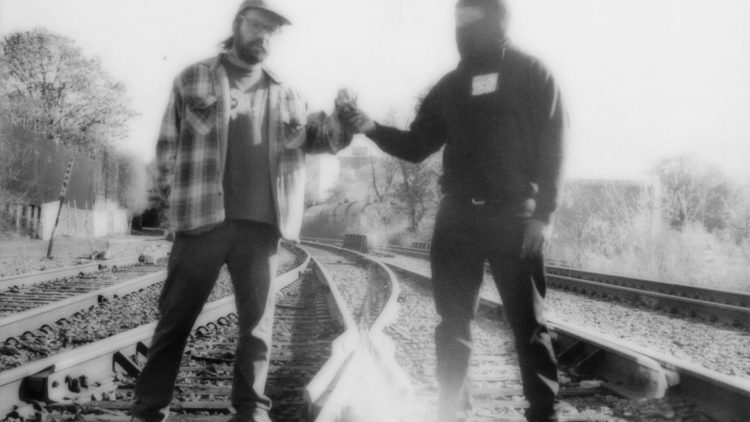For a lot of the previous decade, Brooklyn rapper billy woods — he stylizes his identify in lowercase letters — has reigned as an unlikely hero of left-of-center hip-hop. A protégé of influential Cannibal Ox rapper Vordul Mega, he emerged simply because the subterranean New York scene centered round critically lionized label Definitive Jux started to fragment. Not like lots of his friends who disappeared into CD-R obscurity, woods stored grinding together with his Backwoodz Studios imprint. His 2012 breakthrough, Historical past Will Absolve Me, arrived simply as listeners — prepped by Odd Future, whimsical songwriters like Busdriver and lo-fi criminologists similar to KA and Roc Marciano — had been prepared to have interaction with the extremely stylized songs woods composes.
Enigmatic to a fault, woods has by no means publicly launched his authorities identify and solely agrees to images if his face is blurred out. (Extremely, and regardless of excursions throughout North America and Europe, audiences have largely complied.) He addresses heady themes, from attempting to outlive psychologically in a rapacious capitalistic society to the aftereffects of colonialism within the African Diaspora. He has an uncanny manner of rapping in a transparent Brooklynese accent whereas stacking so many particulars that the listener is left dizzy, not sure what all of them imply.
Maps marks woods’s second full-length collaboration with Kenny Segal, who started his profession within the early Aughts as a beatmaker aligned with L.A.’s influential Challenge Blowed camp. An unstated theme of the continued avant-rap renaissance is that lots of its prime practitioners are of their thirties and forties, with layered rhymes and jagged, unpredictable sounds reflecting years spent refining one’s craft. Woods’ songs betray a markedly completely different sensibility than, say, NLE Choppa turning up the celebration on “Slut Me Out.” However he isn’t a pretentious aesthete. He references Future on “Child Steps,” evaluating himself to the Atlanta rapper’s I By no means Appreciated You album artwork as he dozes off in an Uber. And he cracks smart on “Kenwood Audio system” about boring a cocktail party to demise: “I whispered within the host’s ear all evening/I hear they discovered him within the morning, hose run from the exhaust pipe.”
Segal’s manufacturing is jazzier than Hiding Locations, his 2019 pairing with woods, and sometimes employs clear melodies that invite the listener to lean in nearer. “Gentle Touchdown” is strictly that, mixing sludgy bass booms with acoustic guitar whereas woods chants a refrain impressed by Nina Simone’s “Feeling Good.” “Soundcheck” unfolds like a fusion session; “The Layover” unfurls the hissy, buttery movement of sampled bop piano. Segal switches between these prettier textures and the brittle, distorted beat squalls for which woods is well-known. But total, Maps is much less extreme than Hiding Locations, which excavated the tensions of city residing with punchy humor and ear-ringing sound designs. Primarily, it serves as a travelogue for a blossoming indie star, compiling the misadventures, curiosities, and indignities he endured whereas on tour. “This can be a post-pandemic album,” he just lately instructed Rolling Stone’s Anthony Malone. “[It’s] the quintessential hero’s journey, or any sort of journey that entails getting again dwelling.”
A handful of vocalists drop in, together with Aesop Rock, Backwoodz group ShrapKnel, and Elucid, the latter woods’s accomplice within the long-running duo Armand Hammer. Danny Brown talks wonderful shit on “Yr Zero.” “You the kind of nigga to get lipo,” he cackles. Samuel T. Herring of Future Islands delivers a pleasant refrain on “Facetime” as woods describes navigating missed calls and his personal smoked-out alienation, “feeling like the assistance” amidst “a celebration exterior/Some half, some overdressed/They was going off throughout Playboi Carti’s set/Now they within the halls partying.”
As a mellow and barely bemused collection of vignettes, Maps doesn’t pulse with the identical ardour as Aethiopes, one in all two albums woods launched final yr and arguably a excessive level in his rising catalog. (His different 2022 album, Church, felt like a strong comedown after the Aethiopes peak.) On this sense, woods fulfills the literary expectations he’s typically saddled with. Every work is a special chapter in an impressively constant assortment, and Maps finds him in repose, taking inventory of the world of him. “We’re going to want extra weed,” he says on “Houdini.” “I can inform you that.”




